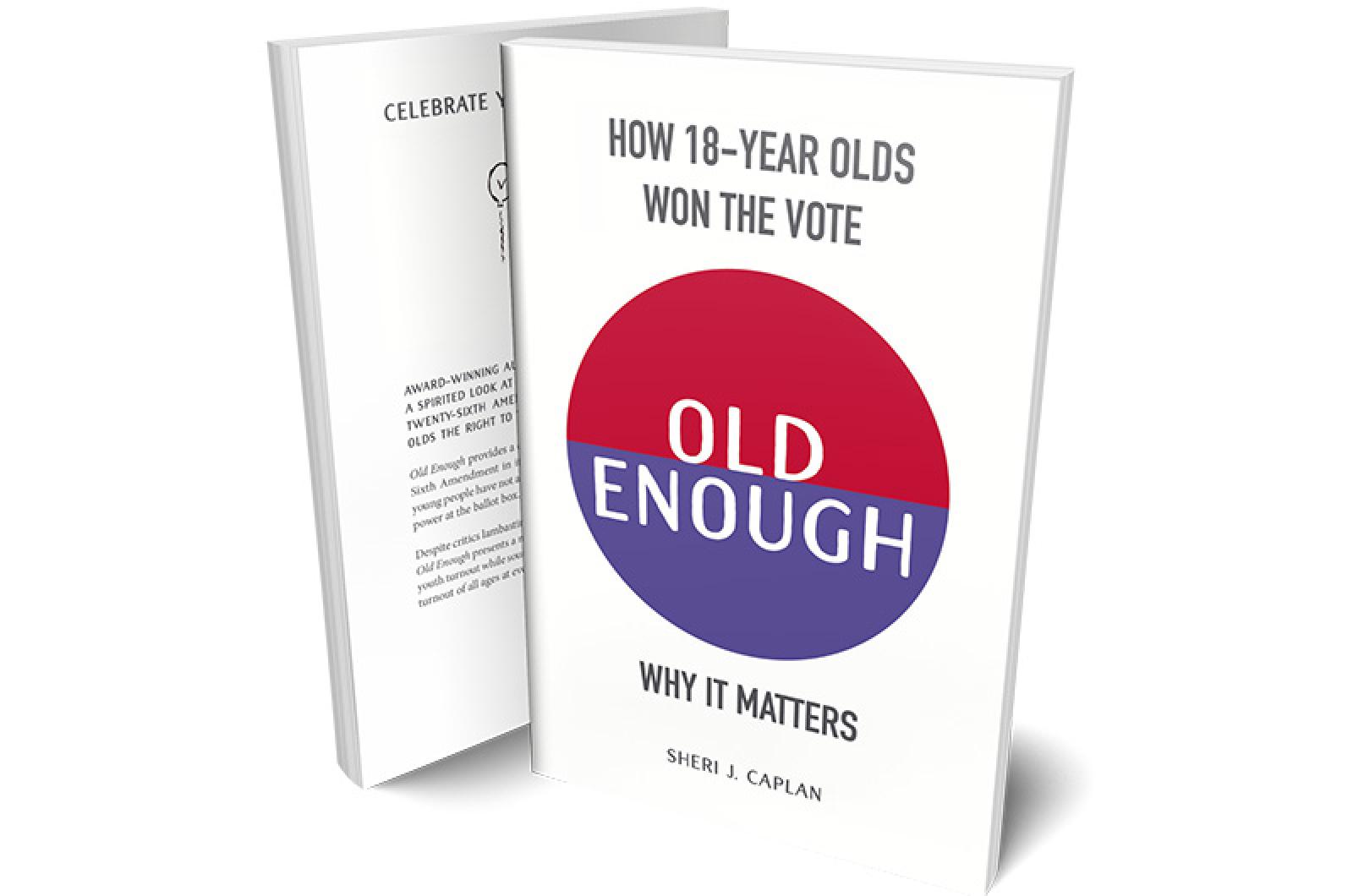The first page of former Wall street lawyer Sheri Caplan’s new book, Old Enough, begins with a birthday card. “Congratulations! You have turned 18!,” read the words above a roughly sketched illustration of a pile of presents. “Here is your ticket to change the world…You can vote!”
The book, published in September, tells the history of the 26th amendment — the 1971 legislation that allowed those 18 years of age or older to vote. In four sections, Ms. Caplan guides readers through the origins of the youth vote, from the country’s founding to the current election, all in an effort to incentivize young Americans to vote.
“It tries to get them motivated to understand that their voice matters at the ballot box,” said Ms. Caplan, a seasonal resident of Chilmark, in a recent phone interview with the Gazette. “Young people are not dependably showing up to vote and there’s a lack of civic education in this country. I thought it could fill a void there.”
The idea for the book came to Ms. Caplan a little over a year ago, when she learned about the nation’s long history of low youth participation in presidential elections. With the 2020 race looming, Ms. Caplan decided to take matters into her own hands.
“Other voting rights topics were getting a lot of coverage but there wasn’t a lot of talk or a lot written about the backstory to the 26th amendment because usually it’s written off with a backhand kind of reference to the Vietnam War era,” she said.
But what began as a historical narrative geared towards adults quickly evolved as Ms. Caplan realized that in order to reach young voters, she had to speak to them.
In its final form, the book weaves documents from the Congressional Record, newspaper archives and secondary source material with popular culture references, photographs and illustrations. In one of its more playful moments, Ms. Caplan describes how the League of Women Voters used Mr. Potato Head to augment voter registration.
“I wanted to make it accessible to all kinds of readers, whether they might be real history buffs or whether they might be more reluctant readers,” said Ms. Caplan.
A life-long history buff, Ms. Caplan said her time studying history as an undergraduate at Yale informed her interest in the topic. Her first book, a collection of biographical essays about Wall Street women called Petticoats and Pinstripes, also piqued her interest in telling overlooked stories.
“What connects the [two books] is they cover topics that didn’t really receive a lot of attention,” she said.
The new book, which has topped the charts in Amazon’s New Young Adult 20th Century American History category since its release, is self-published, Ms. Caplan said, noting the importance of pushing the book through the publishing process prior to the election. The independent imprint also gave Ms. Caplan free rein to price the book on a pay-what-you-can basis, she said.
In a nod to the Vineyard, Ms. Caplan named her imprint Heath Hen after the prairie chicken native to the Vineyard that went extinct in 1932.
“I’ve been coming here regularly for about 20 years and one of the things that makes the Vineyard so special is the degree of civic engagement one sees…If there’s a place where the culture of voting can be celebrated, it’s the Vineyard.”
Ms. Caplan has chosen to donate a portion of the book’s proceeds to three national voting organizations — the Campus Vote Project, the Election Protection coalition and VoteRiders — that specifically encourage youth voting.
Looking ahead, Ms. Caplan said she is considering updating the book in a future edition with the results of the 2020 election and the statistics of youth voter turnout, which have particular relevance in this contested election cycle.
But for the moment, she hopes to reach audiences, old and young, on-Island and off, and to remind everyone of the importance of every vote in maintaining democracy.
In the final pages of Old Enough, Ms. Caplan writes: “Following the signing of the Constitution, when asked whether Americans now had a republic or a monarchy, he reportedly replied, ‘A republic, if you can keep it.’”
On the very last page, in bold typeface, she concludes: “Will you keep it?”.





Comments (1)
Comments
Comment policy »